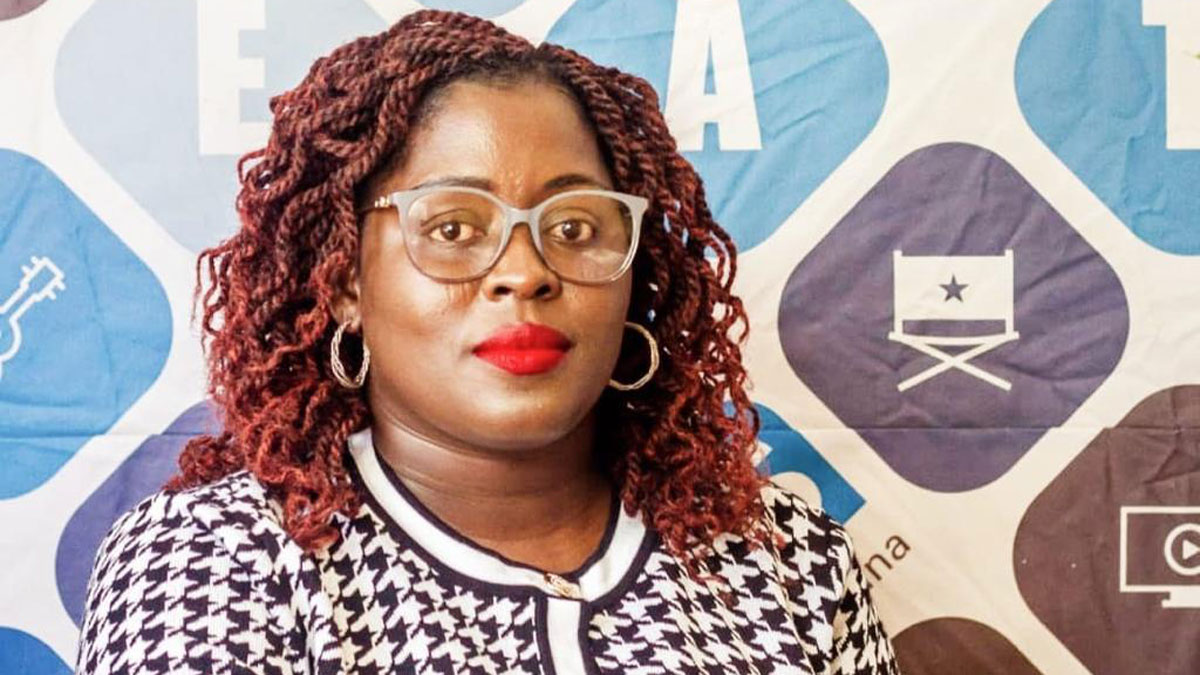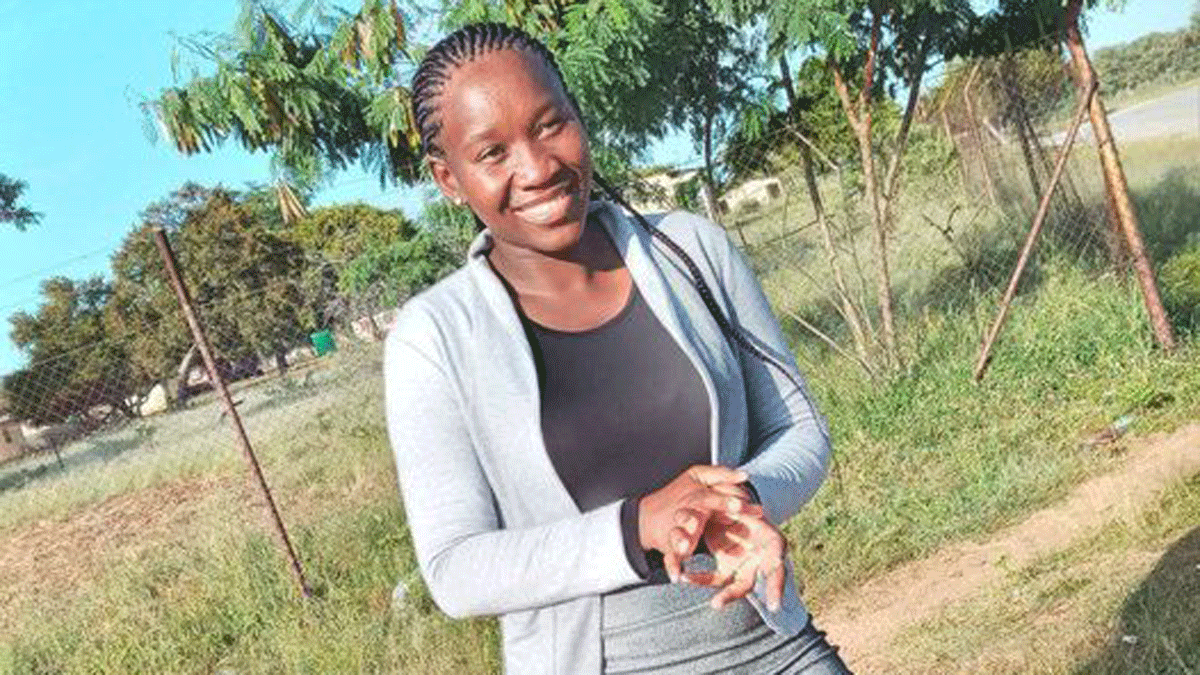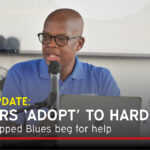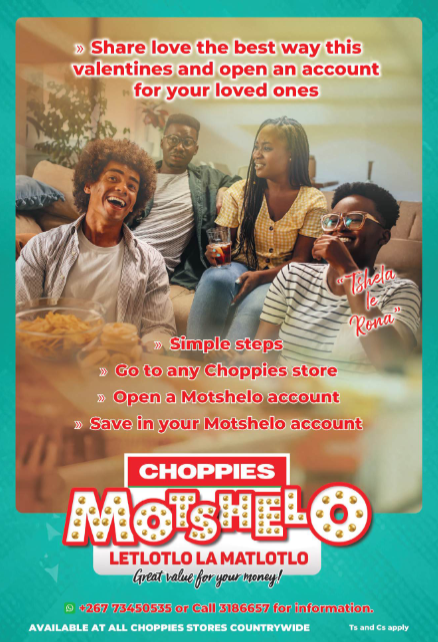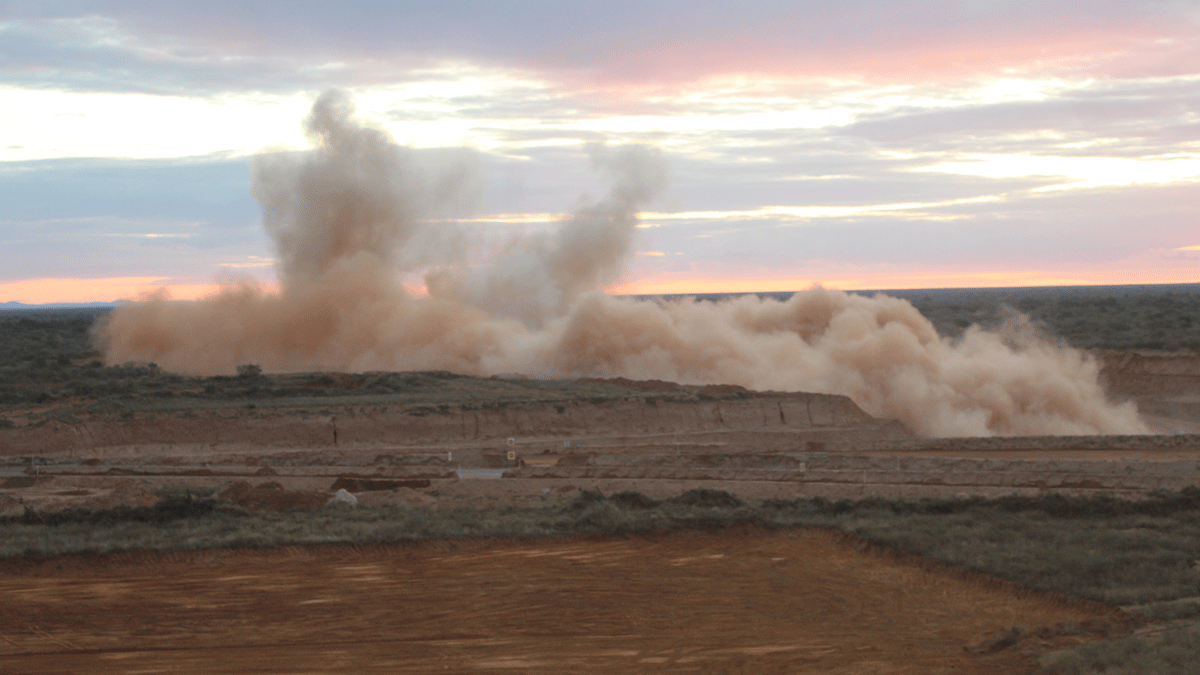A founding director of Copyright Society of Botswana (COSBOTS), Bakalanga Malikongwa has been closely involved with the organisation since its formation in 2011.
A seasoned sales and marketing professional with a further academic background in Education (Bachelor of Arts In English and Post Graduate Diploma in Education from University of Botswana), Malikongwa, prides herself as a business entrepreneur with various skills and interests.
Currently the Chairperson of COSBOTS, a role she assumed in March 2021, Malikongwa aims to use her wealth of experience to drive the society to greater prosperity.
1. Kindly introduce yourself.
Allow me to introduce myself as Mrs. Bakalanga Malikongwa, the current Chairperson of the Copyright Society of Botswana (COSBOTS).
As one of the founding directors of COSBOTS, I have been closely involved with the organization since its inception in 2011.
Prior to assuming my current role, I served as the Vice Chairperson for two years before resigning from the Board Membership.
In March of 2021, I returned to the Board, bringing with me a wealth of experience and knowledge that I am eager to contribute to the continued success of COSBOTS.
I am a seasoned Sales and Marketing professional, as well as a Business Entrepreneur with diverse skills and interests.
Alongside my successful ownership of a Forever Living business, I have also established myself as a screenwriter, literary author, and actor.
My academic background comprises a Bachelor of Arts in English and a Post Graduate Diploma in Education from the esteemed University of Botswana.
In addition, I have pursued various professional courses related to sales and marketing, as well as business operations, to expand my knowledge and expertise in these fields.
With over a decade of experience in sales leadership, I have honed my skills in directing business operations, spearheading client acquisition efforts, executing content marketing strategies, and delivering effective business solutions.
My rich experience and diverse skillset enable me to provide valuable insights and creative solutions to any challenge that I encounter in my professional endeavours.
In addition to my academic achievements and professional experience, I also have a passion for the performing arts.
I pursued theatre or stage drama at the University of Botswana, and my talent has led me to feature in various productions on local and international platforms.
One of my proudest accomplishments includes my breakthrough role in the widely acclaimed Hollywood movie, “The Number 1 Ladies’ Detective Agency”, where I portrayed the character of a stall holder – mmasemausu.
Additionally, I had the honor of starring in the Letsatsi Dance Theatre at Maitisong.
Currently, I am also featured in two movies that are currently playing at Capitol Cinemas, namely “Queen of the Hearts” and “The Chosen”.
I have also featured in several stage dramas by the University of Botswana theatre group under the esteemed direction of Professor Patrick Ebewu and late Dr. Omoregie.
Furthermore, I have acted in a few productions by Baboneng films and Naletsana films.
My writing skills have also earned me recognition on an international level.
My work has been featured in several anthologies, including one compiled and edited by Barolong Seboni titled “Writing Between Languages – A Poetic Conversation Between Sweden and Botswana.”
In this particular anthology, my interview with Seboni called “Negritude and the Botswana Writer: A Conversation Between Barolong Seboni and Bakalanga Mahoko” was published.
Currently, I am excited to announce that my debut novel, “When the Victim Decides to Survive,” will be released in August this year.
Furthermore, I have been invited to feature in an upcoming Nigerian movie by Dr. Wale Okediran, which is a fantastic opportunity for me to continue honing my craft in the performing arts.
2. For those that don’t know, what is COSBOTS? What is its mandate?
COSBOTS is a Collective Management Organization (CMO) established under the Copyright and Neighbouring Rights Act Cap 68:02.
It is a multi-disciplined CMO which means it is responsible for the different works protected under the Botswana Copyright law.
Its mandate is to negotiate and license users of copyright on behalf of rights holders, collect license fees and distribute it to the rightful owners of works according to the rate of use.
3. How many members does the society have – who is eligible to join and how much does it cost?
The current membership count stands at an impressive 2956 individuals.
Membership is exclusively reserved for esteemed creators and copyright owners who are either citizens or residents of Botswana.
To be considered for membership, eligible candidates must provide substantial evidence of their works and any relevant contracts pertaining to their creations.
Legal entities incorporated under the Botswana company laws can also join the society.
4. When did you take over as Chairman and what exactly is your role?
In 2021, I was honored to take over the role of Chairmanship following an intense and fiercely contested board election.
As Chair, my primary responsibility is to provide the company with strategic leadership and direction, in order to achieve our ambitious and dynamic strategic goals.
5. How was the society doing when you took over? In the past, it’s been rocked by rumours of in-fighting and corruption, what have you done differently?
I am pleased to see that you acknowledge the previous challenges that our society faced, including rumours of infighting and corruption.
While these allegations have remained as rumours from external sources, they have undoubtedly caused concern and anxiety among our members.
Since taking over the leadership role, we have taken decisive actions to address these concerns and implement meaningful change.
Our first step was to review the company’s strategy, placing a renewed focus on putting our members at the forefront of everything we do.
We also recognized the critical importance of robust corporate governance statutes and put in place a comprehensive framework to ensure transparency and accountability at every level of the organization.
As a result of these efforts, I am delighted to report that we have made significant progress in creating a more inclusive, equitable, and successful society.
We are proud of our achievements and are committed to continue working toward building a thriving community that fosters creativity, innovation, and excellence.
6. Do you have a background in music? What is your professional background?
With a strong professional background in the retail industry, particularly in the areas of sales and marketing, I bring a wealth of valuable experience to the table, which has contributed to my success as a leader and Chair of the COSBOTS Board.
In addition, I have undergone various governance trainings conducted by Professor Mervin King, which have further honed my skills in corporate best practices and business etiquette.
While I have no background in music, I have written a few songs for friends, and my passion for the creative arts as a screenwriter, scriptwriter, and film actor has provided me with a unique perspective.
This enables me to appreciate and understand the challenges and opportunities that our members face in their creative endeavours.
By leveraging my diverse skill set and experience, I am well-equipped to provide the strategic direction and leadership necessary to drive our company forward.
My goal is to ensure that our members have the support and resources they need to achieve their goals and ultimately reach their full potential.
As one of the reputable CMOs in Africa, COSBOTS is well-positioned to continue to serve its members under my leadership, and I am committed to ensuring that our organization remains a trusted partner for all copyright holders in Botswana and international affiliates.
7. Is it a full-time occupation (if not, what else do you do?) roughly how much of your time does the role take up?
The role of Chairperson is not a full-time occupation as the day-to-day business of the company is managed by internal staff, led by the CEO.
As Chairperson, my primary focus is on providing strategic leadership and direction to the company, and I work closely with the CEO and other board members to ensure that our company operates at its full potential.
In addition to my responsibilities within the boardroom, I am also highly engaged in supporting and assisting our members.
This requires a significant investment of time and energy, as you work to provide guidance and support to those seeking your expertise.
To ensure that you are able to provide the level of support and assistance that our members require, I have to exercise an open-door policy that encourages communication and collaboration between the Chairperson and the membership.
Additionally, we have established various committees that enable the board to consult and provide advice to both management and the board, ensuring that we remain responsive to the needs of our members and stakeholders and continuously enhance the performance of our company.
8. The organization has been fully operational since November 2011 – what three major highlights can you point to in that time?
As a company, we have achieved many significant milestones over the years, including the approval of our first tariffs, kickstarting the licensing process, and distributing copyright royalties for the very first time in Botswana. These accomplishments are a testament to the hard work and dedication of our team and the unwavering support of our members.
Of particular note is our exceptional performance in the area of copyright royalties.
As an infant collective management organization, we started collections in 2012 and made our first distribution in 2014.
Since then, we have made over 15 distributions, totalling P55 million, and we were able to give P6.5 million to our members during and after the COVID-19 pandemic.
Additionally, we have supported our members in the social and cultural areas through our social and cultural fund, providing P3 million in assistance.
We are also pleased to report that we are now fully collecting for text and image authors – book writers and visual artists and are seeing strong results.
Overall, we are proud of our achievements and are excited about the future of our company.
We remain committed to providing exceptional support and services to our members, and we look forward to continuing to make significant contributions to the creative arts in Botswana and beyond.
Watch this space for more exciting developments!
9. How do royalties work? Where do you collect them from, how are they calculated and how often are they paid out?
Royalties are an essential source of income for creators and copyright owners, and at COSBOTS, we take great pride in ensuring that our members receive fair compensation for the use of their works.
We collect royalties from various users, depending on the type of usage and the work in question.
For example, literary and artistic works are often used by companies, learning institutions, and government agencies, while music is commonly used by radio and television broadcasters, bars, nightclubs, and music events.
The royalties calculation is based on the rate of usage, and we employ a highly accurate scientific method of distribution.
For instance, in the case of music royalties, we use our monitoring system to collect usage reports and compile airplay time data, which is then used to determine the amount of fees paid per second the song has played over a period of time.
For reprographic works, we collect data on the list of literary works used and allocate scores based on categories, such as core subjects, optional or supplementary subjects’ material.
Works used in core subjects receive higher scores and, therefore, higher pay.
We distribute royalties at least twice annually, and this year alone, we have already made out four different royalties’ payments to our music members.
At COSBOTS, we are committed to ensuring that our members receive fair and timely compensation for their creative works, and we will continue to work tirelessly to achieve this goal.
10. How does COSBOTS monitor playlists of its members across various mediums (TV, shops, radio, corporate events, nightclubs etc.)?
We take great care to monitor the usage of copyrighted works by large users such as radio, television, and public performance venues.
Our monitoring system tracks and generates reports on the rate of usage, ensuring that we are able to provide accurate and fair compensation to our members.
This system allows us to track the usage of copyrighted works in real-time, enabling us to provide timely and accurate royalty payments to our members.
We are proud of the effectiveness and accuracy of our monitoring system, and we continue to work diligently to improve our methods and ensure that our members receive the compensation they deserve.
11. What about local stars whose music is played beyond Botswana’s borders? Do you collect for them – alternatively what about international stars whose music is played here, i.e., Eminem, Harry Styles etc. – do they get paid anything?
COSBOTS has signed several reciprocal representation agreements with other rights management organizations around the world.
While some of these agreements have not been fully implemented due to logistical challenges, we are proud to report that we are successfully collecting royalties from outside the borders of Botswana.
In fact, in December 2022, we were able to distribute mechanical rights royalties to our members for the use of works in digital service providers paid by Composers, Authors and Publishers Association (CAPASSO) in South Africa.
This followed successful payments made by us to international rights management entities, including Sony Music, Universal, and Warner.
We are committed to working closely with our international partners to ensure that our members receive the compensation they deserve for the use of their copyrighted works, regardless of where they are used around the world.
12. What other sources of income does COSBOTS have? Where does the revenue to pay employees come from?
As a collective management organization (CMO), COSBOTS’ mandate is clearly defined by the Copyright and Neighbouring Rights Act.
Our primary responsibility is to collect and distribute royalties on behalf of our members for the use of their copyrighted works.
It is important to note that CMOs like COSBOTS are prohibited from engaging in businesses outside of their mandate and are classified as non-profit organizations.
To sustain our operations, we are permitted to make deductions for administrative expenses, which stands at a maximum of 30% as an international benchmark.
These funds are used to cover the salaries of our employees and the costs associated with managing the collection and distribution of royalties.
We take our responsibilities very seriously and are committed to managing our resources in a transparent and responsible manner, while fulfilling our mandate to serve the best interests of our members.
13. What are some of the biggest obstacles the society faces in achieving its mandate?
While we have made significant progress in our efforts to collect and distribute royalties on behalf of our members, there are still several obstacles that we face.
One major challenge is user resistance due to limited knowledge of intellectual property (IP) rights.
Many users are not aware of the legal obligations surrounding the use of copyrighted works and therefore resist paying royalties, especially government ministries and departments and most state-owned enterprises – parastatals.
Another challenge is limited resources, which can make it difficult for us to effectively monitor and enforce copyright violations.
This is compounded by the lack of support and resources from some government bodies, which can hinder our efforts to protect and promote the rights of our members.
14. How can these be overcome?
Public education, the development of a robust strategy, and continuous engagement of all stakeholders are essential in addressing the obstacles that COSBOTS faces.
By educating the public on the importance of intellectual property and the role of COSBOTS, we can increase awareness and understanding of the value of creative works and the need to compensate creators for their works.
Continuous engagement with stakeholders, including members, users, and government, will allow us to identify and address any concerns or issues that arise and ensure that our actions align with the needs and expectations of all parties involved.
This can be done through measures such as strengthening the enforcement of the copyright law, and government creating a more supportive and sustainable environment for creators to thrive and contribute to the growth of our economy.
15. What is the most COSBOTS has paid out to a single artist? On average, how much does a high-profile local artist earn from COSBOTS?
It’s important to note that the amount paid to individual artists by COSBOTS can vary depending on factors such as the type of work, frequency of usage, and the distribution policy in place at the time.
That being said, we have had some members receive over P50, 000.00 with top 20 local artists averaging of P13, 000.00
16. Is it correct that some artists can be paid as little as 50 thebe in a year? How can that be possible?
The amount of royalties paid for a song will depend on the number of times it has been played or performed, as well as the length of time it was played or performed.
So, if a song has only been played once for a short period of time, the royalties paid for that song would be relatively low compared to a song that has been played multiple times for longer periods of time.
So, if the amount due to a member for a particular distribution is less than P300.00, it is withheld until the accumulated amount reaches or exceeds P300.00, and then the payment is made.
17. Currently, what are the top three most played songs in Botswana – either local or international?
Three most played songs:
INTERNATIONAL TOP MUSIC PLAYERS
Dave – World concerns
Kevin Mclead – Long note
Kavin Mclead – Just as soon
NATIONAL TOP PLAYERS
Chef Ghustos – away
Ice cold – about you
Sereetsi and the nature – thaa kokome
18. Going forward, under your leadership, where do COSBOTS need to improve?
The Copyright Society of Botswana (COSBOTS) is a multi-purpose organization that represents various sectors of the creative industry, including music, literary works (text and image), dramatic and theatrical works, visual arts, photography, film, and audio-visual productions.
Our primary objective is to ensure strict adherence to copyright regulations by both the government and creators, while also advocating for fair compensation for creators for the utilization of their works.
To achieve this mandate, we firmly believe that artists should benefit from the levy on technical devices (LTDF), which should be managed by COSBOTS in a responsible and efficient manner. Additionally, we strongly advocate for text and image authors to be granted public lending rights for the use of their books in public libraries.
We urgently call on the government, particularly the Ministry of Trade and Industry and CIPA, to be proactive in meeting the needs of creators and to expedite the necessary reforms, as events have shown that they are imperative.
19. Away from work, what’s your idea of a perfect Friday night?
As a proficient Christian, I find great pleasure in listening to Gospel music.
PERSONAL PROFILE
Full Names: Bakalanga Kewame Malikongwa
Place of Birth: Musojane
Date of Birth: 20 December 1979
Marital Status: Married
Favourite Meal: Pork ribs and roasted verges
Favourite Drink: Coke Zero
Top Hobby: Adventures and Reading
Favourite Holiday Destination: Dubai
What makes you happy: family – my husband and children, truth and fairness and being able to make a difference in others lives
What makes you angry: dishonesty and abuse of any form



